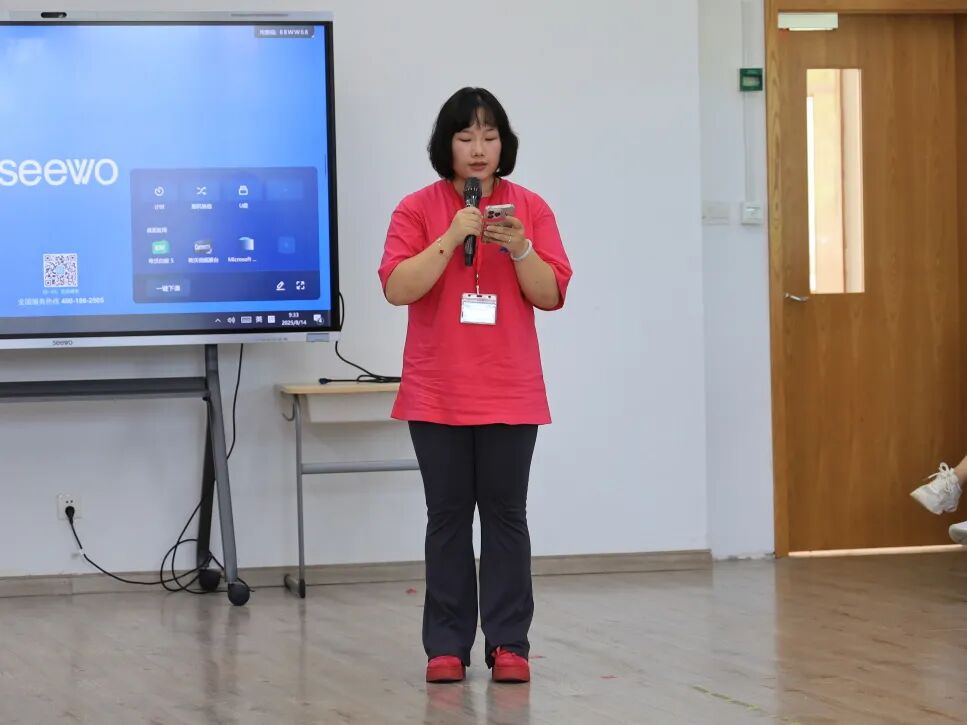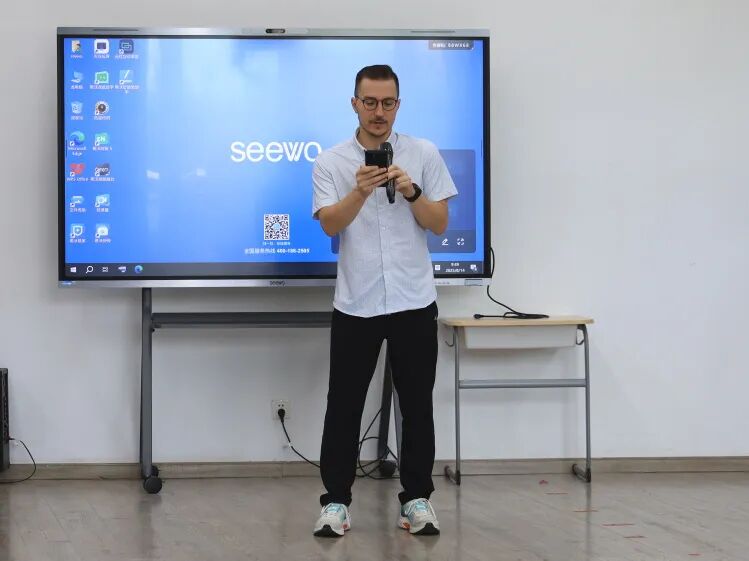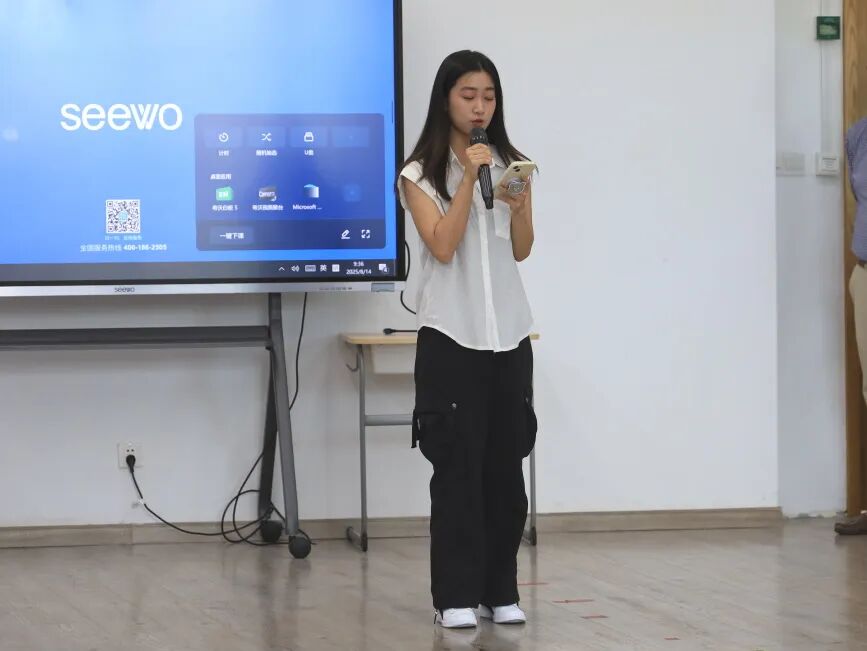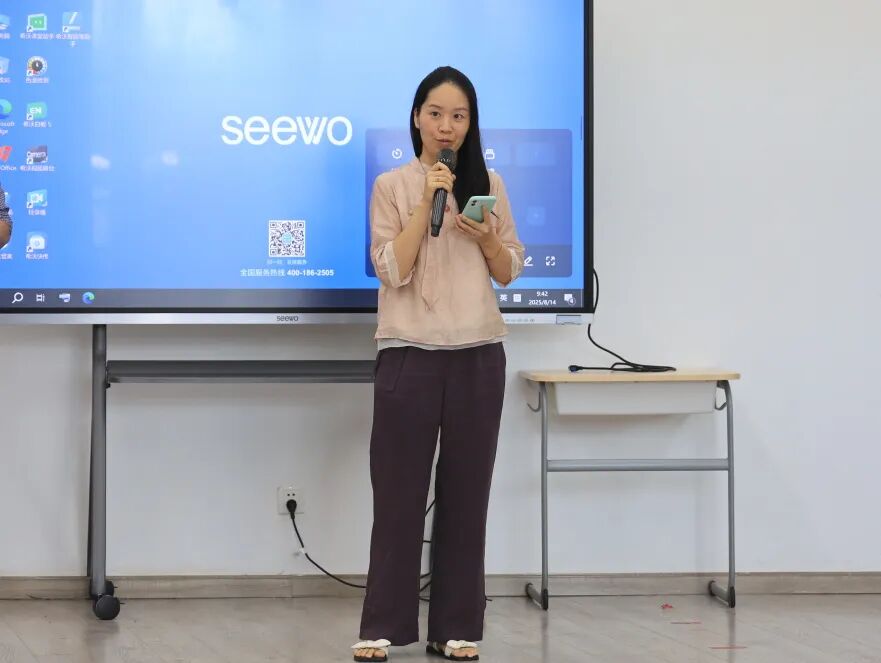Welcome, everyone, to a new school year. I hope everyone had a great, restful summer break.
I was asked to speak today on the topic of growth, and writing this speech was a good opportunity for me to think about this topic in my own life.
I’ve been at SHBS for one year now, and I’ve been in China for almost exactly one year as well.
In fact, it was on August 12th last year, which is also my birthday, that I arrived in Shanghai. Irene welcomed me at the Pudong Airport, and Chris welcomed me here at SHBS. They had even gotten me a cake for my birthday, which I really appreciated.
So, in thinking about this topic, the main questions I asked myself were:
How have I grown during my first year at SHBS?
What helped to drive and facilitate that growth?
As I thought about those questions, three things I’ve learned regarding my professional growth stood out to me.
#1: Collaborating with colleagues.
During my first year at SHBS, I worked closely with the colleagues in my office.
Marc and I both taught American Literature, and while he may not have realized it, speaking with Marc about what we’re doing in class, what was working or not working, what was difficult or what was going well in our classes, was an invaluable conduit to my growth as a teacher.
Likewise, I often spoke with Olivia about more general classroom practices—we exchanged ideas on what had worked well for us and shared ideas to strengthen our students’ writing skills.
To me, these conversations were absolutely essential as a teacher, as this is where most of my reflection took place—and we cannot grow if we’re not reflecting.
For me personally, these conversations naturally and organically helped me think more deeply about how I’m evolving as a teacher.
And really, the truth is, the colleague you’re having these discussions with, will likely experience the same benefits as well.
#2: Experimenting and teaching
During one of our Professional Development sessions in the second semester, Chris had suggested experimenting with different strategies, ideas, and practices in the classroom; for example, he said, have students stand up when they’re tired, stomp their feet, clap--don’t be afraid to try all kinds of different things.
For me, my takeaway was that as teachers, we have the luxury to experiment—we can try out an activity or an assignment in the classroom, and if it works, great, and if not, we know not to use that assignment again in the future.
After Chris’ suggestion, I was inspired to try some different practices in my classroom. In the second semester, I started to use more hand-written, in-class assignments rather than digital, and I began to ask students more frequently to think about the readings in class in relation to their own lives.
After I implemented some of these ideas in my 9th grade class, I noticed a change. Many of my students were consistently turning in thought-provoking, detailed, hand-written work.
My favorite part was that a few quieter students, who sometimes turned in shorter, less than stellar work digitally, were now submitting much more in-depth responses.
It does take some courage for us to carry out these different ideas in the classroom. However, if I stayed in my comfort zone, and if I didn’t experiment, I wouldn’t have seen these changes in my students and their work.
In hindsight, this focus on experimentation directly led to my growth as an educator. It gave me an increased sense of freedom in the classroom, and in turn, increased my confidence as well.
#3: this last one, I’ll keep very short. It’s more of a reminder than anything – we should try to avoid hypocrisy; and what I mean by that, is teachers should take time to consider their growth too.
At different points in the school year, if we’re asking our students to reflect on their growth, it’s only fair that we do this ourselves too as teachers. It can be a very difficult thing for our students to do, and I think we have to be willing to do this ourselves as well.
So, to sum up, during this school year I encourage you to find a colleague to have discussions with, to experiment with different practices in the classroom, and if you’re asking your students to think about their growth, to do the same thing yourself.
The best part is that, if you don’t want to do any of these things I’ve mentioned, you don’t have to. Growth looks different for everyone--these are just suggestions and ideas—this is just what I personally experienced myself.
That being said, I encourage you to discover those things that will help you grow as an educator.
Over the course of this year, each of us will experience our own unique path of growth, and I look forward to hearing in what ways you’ve grown, at this same time next year.
Here’s to a great school year here at SHBS. Thank you so much.
























